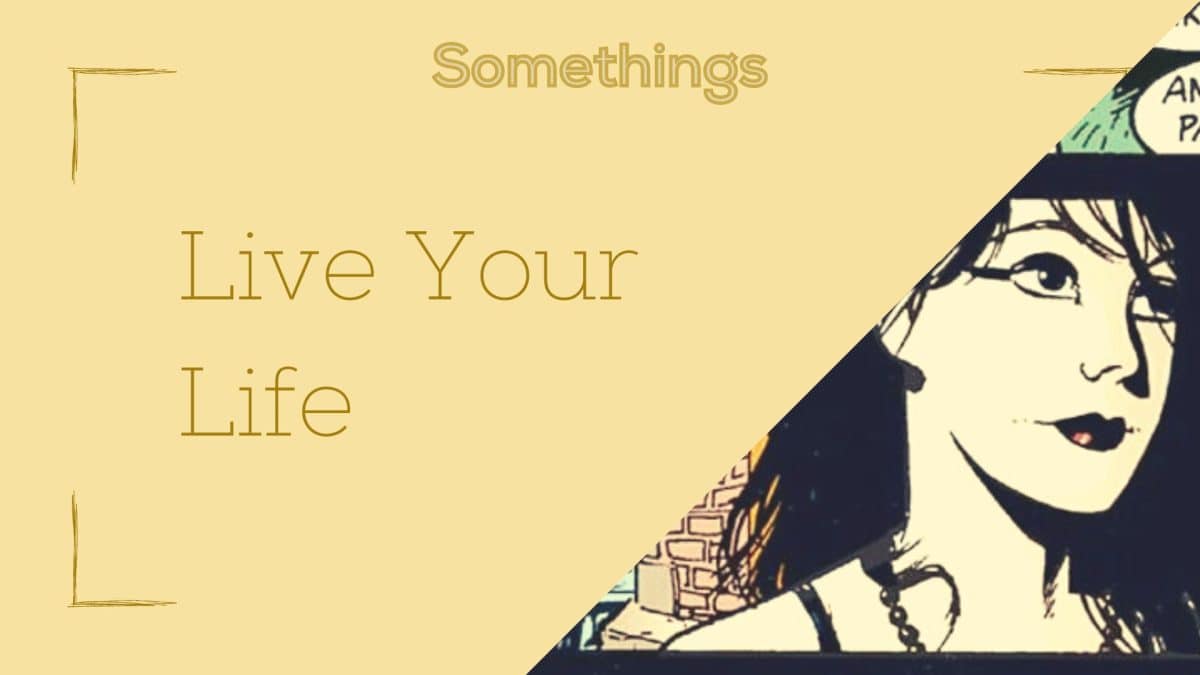Hello Subscribers, New and Old.
Welcome to Weekly Wisdom, your weekly dose of highlights, quotes and notes from my notebook. If you would like to receive this in your inbox, subscribe now.
If you want to support this work, do checkout the links in the Friends of Somethings Section. It would help me grow
A new year brings a new name. When I selected the ‘Weekly Wisdom’, I was only looking for alliteration. I was not aware of the other email newsletters that shared this name. Most of the ones I checked out were about Christian ‘wisdom’. No judgement on any one but that is quite different than what I am trying to achieve. Henceforth, this newsletter will be called Somethings.
Onwards and upwards.
💡Something I learned
You get a life time
I recently started going through the Sandman comic-book. I can’t believe I waited this long. Neil Gaiman is one of my favorite authors and this is one of his best works.
In Brief Lives, the 7th collected edition of the series, an seemingly immortal man Bernie asks the embodiment of Death whether his life was long enough. This is her answer:

The whole story-arc is a rumination on mortality. This panel is a great summary. Regardless of race, religion, creed, sex or any other category we are associated with, we all only get a lifetime. Regardless of your belief in an afterlife-as-a-reward(or punishment), all we have is this life.
So we should live it. There is no other option. Spend time with your loved ones. On leisure. On labor. Whatever you want, whatever you need, this is all you have. So live your life.
📺Something to Watch
Rian Johnson is one of my favorite film-makers. His latest film, Glass Onion, recently released and from my estimate, has been quite popular. The film is a blend of Agatha Christie and Stephen Sondheim(who also appears in a cameo). It is one of the funniest films you will watch this year. Many prefer the previous film in the series, but I think it is Johnson’s best work since his first movie, Brick.
🔉Something to Listen
- Fiona part 1 and part 2, The Allusionist: A podcast on the history of the name ‘Fiona’ ends up speaking a lot on the history and culture
- of the Scots Highlands, gender politics and the nature of the ‘self’.
Friends of Somethings
- Refind: The essence of the web, every morning in your inbox. Tens of thousands of busy people start their day with their personalized digest by Refind. Sign up for free and pick your favorite topics and thought leaders. https://refind.com/?utm_source=newsletter&utm_medium=barter&utm_campaign=FU-SmtfFzzhQJDgFEz5eiw
- The Sample: The Sample lets you try the best newsletters based on your interest. With one-click you can subscribe if you like.
🗣Some Quotes and Notes
Making History
This is a very good essay on how we chose to present history. It leans a little too heavily on the side of The Free Market Fairy cult, but the broad points it makes are quite accurate. Cooperation should have the same stature in historical texts as war.
The political understanding of history leads us to view our situation in a distorted and inaccurate way. It implies that if you want to address social problems or challenges, then politics (whether electoral or revolutionary) is the only way to do it. It implies that the news and events we should pay attention to are political ones, because those are what will have the greatest impact.
— Stephen Davies, History is in the making
What’s in a name?
There is a prevalent belief that internet users are mean and downright caustic because they can ‘hide behind pseudonyms’. It seems a lot of people have not used Facebook. This piece shows the central thesis behind it is misguided. It is seeking technological solution to a sociological problem.
Yet the balance of experimental evidence over the past thirty years suggests that this is not the case. Not only would removing anonymity fail to consistently improve online community behavior – forcing real names in online communities could also increase discrimination and worsen harassment.
…
Designers need to see beyond cultural assumptions. Many of the lab experiments on “flaming,” “aggression,” and anonymity were conducted among privileged, well-educated people in institutions with formal policies and norms. Such people often believe that problem behaviors are non-normative. But prejudice and conflict are common challenges that many people face every day, problems that are socially reinforced by community and societal norms. Any designer who fails to recognize these challenges could unleash more problems than they solve.
— J. Nathan Matias, The Real Name Fallacy
Who controls the past now…
Everyone’s favorite cranky statistics grandpa writes about writing. This passage in particular tells us about a how to survive in posterity.
I stood the idea on its head. If you want to be read in the future, make sure you would have been read in the past. We have no idea of what’s in the future, but we have some knowledge of what was in the past. So I make sure I would have been read both in the past and in the present time, that is by both the comtemporaries[sic] and the dead. So I speculated that books that would have been relevant twenty years in the past (conditional of course of being relevant today) would be interesting twenty years in the future.
— NN Taleb, How I write
Thank you for joining me this week. If you know some who might enjoy this, please forward this email to them. See you next week.
Mudassir Chapra

